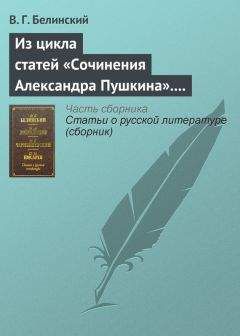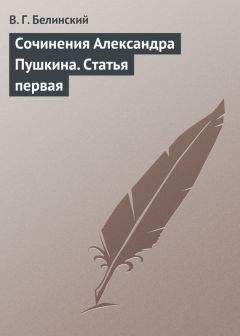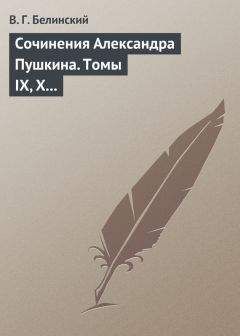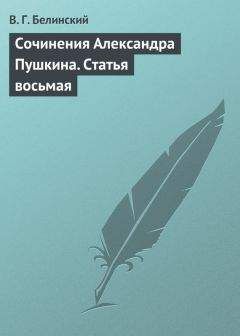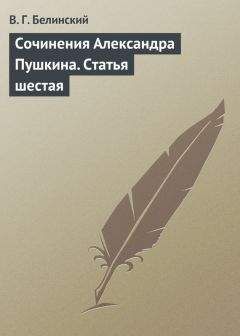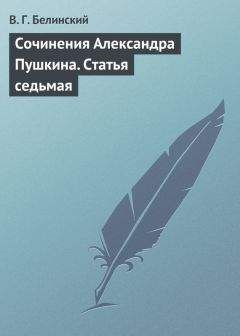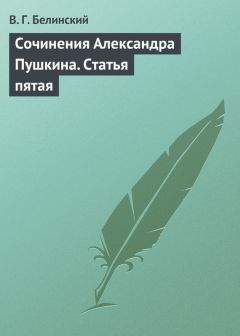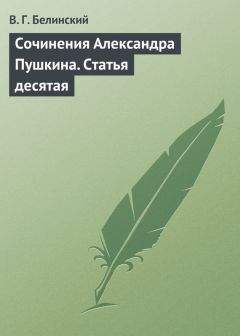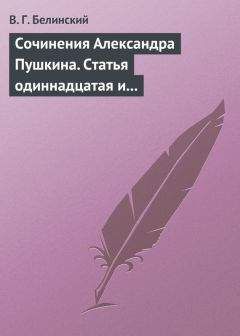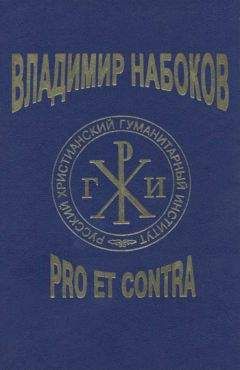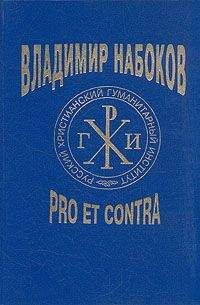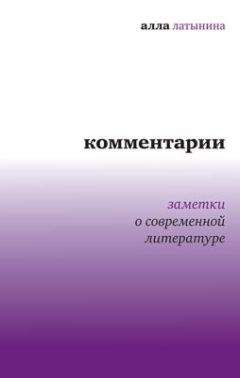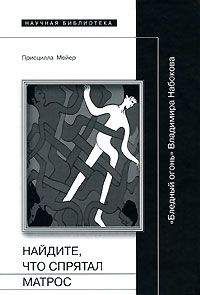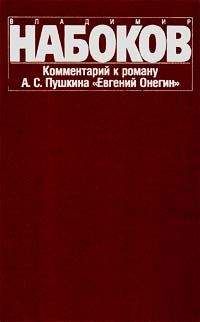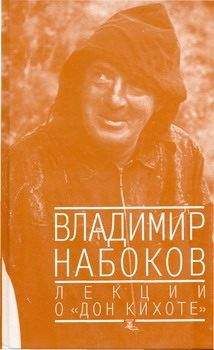Владимир Набоков - Комментарии к «Евгению Онегину» Александра Пушкина
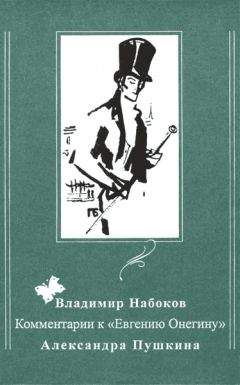
Скачивание начинается... Если скачивание не началось автоматически, пожалуйста нажмите на эту ссылку.
Жалоба
Напишите нам, и мы в срочном порядке примем меры.
Описание книги "Комментарии к «Евгению Онегину» Александра Пушкина"
Описание и краткое содержание "Комментарии к «Евгению Онегину» Александра Пушкина" читать бесплатно онлайн.
Комментарии В. В. Набокова освещают многообразие исторических, литературных и бытовых сторон романа. Книга является оригинальным произведением писателя в жанре научно-исторического комментария. Набоков обращается к «потаенным слоям» романа, прослеживает литературные влияния, связи «Евгения Онегина» с другими произведениями поэта, увлекательно повествует о тайнописи Пушкина.
Предназначена для широкого круга читателей и в первую очередь — для преподавателей и студентов гуманитарных вузов, а также для учителей и учащихся средней школы.
XXV
So she was calledTatiana. Neither with her sister's beauty
nor with her [sister's] rosy freshness
4 would she attract one's eyes.
Sauvage, sad, silent,
as timid as the sylvan doe,
in her own family
8 she seemed a strangeling.
She knew not how to snuggle up
to her father or mother;
a child herself, among a crowd of children,
12 she never wished to play and skip,
and often all day long, alone,
she sat in silence by the window.
XXVI
even from cradle days,
adorned for her with dreams
4 the course of rural leisure.
Her delicate fingers
knew needles not; over the tambour bendin
with a silk pattern she
8 did not enliven linen.
Sign of the urge to domineer:
the child with her obedient doll
prepares in play
12 for etiquette, law of the monde,
and gravely to her doll repeats the lessons
of her mamma;
XXVII
did not take in her hands a doll;
about town news, about the fashions,
4 did not converse with it;
and childish pranks
to her were foreign; grisly tales
in winter, in the dark of nights,
8 charmed more her heart.
Whenever nurse assembled
for Olga, on the spacious lawn,
all her small girl companions,
12 she did not play at barleybreaks,
dull were to her both ringing laughter
and noise of their giddy diversions.
XXVIII
liked to prevene Aurora's rise,
when, in the pale sky, disappears
4 the choral dance of stars,
and earth's rim softly lightens,
and, morning's herald, the wind whiffs,
and rises by degrees the day.
8 In winter, when night's shade
possesses longer half the world,
and longer in the idle stillness,
by the bemisted moon,
12 the lazy orient sleeps,
awakened at her customary hour
she would get up by candles.
XXIX
for her they replaced all;
she grew enamored with the fictions
4 of Richardson and of Rousseau.
Her father was a kindly fellow
who lagged in the precedent age
but saw no harm in books;
8 he, never reading,
deemed them an empty toy,
nor did he care
what secret tome his daughter had
12 dozing till morn under her pillow.
As to his wife, she was herself
mad upon Richardson.
XXX
was not that she had read him,
and not that Grandison
4 to Lovelace she preferred;14
but anciently, Princess Alina,
her Moscow maiden cousin,
would often talk to her about them.
8 Her husband at that time still was
her fiancé, but against her will.
She sighed after another
whose heart and mind
12 were much more to her liking;
that Grandison was a great dandy,
a gamester, and an Ensign in the Guards.
XXXI
dressed in the fashion and becomingly;
but without asking her advice
4 they took the maiden to the altar;
and to dispel her grief
the sensible husband repaired
soon to his countryseat, where she,
8 God knows by whom surrounded, tossed
and wept at first,
almost divorced her husband, then
got occupied with household matters, grew
12 habituated, and became content.
Habit to us is given from above:
it is a substitute for happiness.15
XXXII
that nothing else could ward;
a big discovery soon came
4 to comfort her completely.
Between the dally and the do
a secret she discovered: how to govern
her husband monocratically,
8 and forthwith everything went right.
She would drive out to supervise the farming,
she pickled mushrooms for the winter,
she kept the books, “shaved foreheads,”
12 to the bathhouse would go on Saturdays,
walloped her maids when cross —
all this without asking her husband's leave.
XXXIII
in tender maidens' albums,
would call Praskóvia “Polína,”
4 and speak in singsong tones;
very tight stays she wore,
and knew how to pronounce a Russian n
as if it were a French one, through the nose;
8 but soon all this ceased to exist; stays, album,
Princess [Alina],
cahier of sentimental verselets, she
forgot, began to call
12 “Akúl'ka” the one-time “Selína,”
and finally inaugurated
the quilted chamber robe and mobcap.
XXXIV
he did not enter in her schemes,
on every score lightheartedly believed her
4 whilst in his dressing gown he ate and drank
His life rolled comfortably on;
at evenfall sometimes assembled
a kindly group of neighbors,
8 unceremonious friends,
to rue, to tattle,
to chuckle over this or that.
Time passed; meanwhile
12 Olga was told to prepare tea;
then supper came, and then 'twas bedtime,
and off the guests would drive.
XXXV
the customs of dear ancientry:
with them, during fat Butterweek
4 Russian pancakes were wont to be.
. . . . . . . . . . . . . . . . . . . .
. . . . . . . . . . . . . . . . . . . .
. . . . . . . . . . . . . . . . . . . .
8 . . . . . . . . . . . . . . . . . . . .
. . . . . . . . . . . . . . . . . . . .
. . . . . . . . . . . . . . . . . . . .
. . . . . . . . . . . . . . . . . . . .
12 kvas was as requisite to them as air,
and at their table dishes were presented
to guests in order of their rank.
XXXVI
and the grave's portals
opened at last before the husband,
4 and a new crown upon him was bestowed.
He died at the hour before the midday meal,
bewailed by neighbor,
children, and faithful wife,
8 more candidly than some.
He was a simple and kind squire,
and there where lies his dust
the monument above the grave proclaims:
12 “The humble sinner Dmitri Larin,
slave of our Lord, and Brigadier,
enjoyeth peace beneath this stone.”
XXXVII
Vladimir Lenski visited
his neighbor's humble monument,
4 and to the ashes consecrated
a sigh, and long his heart was melancholy.
“Poor Yorick!”16 mournfully he uttered, “he
hath borne me in his arms.
8 How oft I played in childhood
with his Ochákov medal!
He destined Olga to wed me;
he used to say: ‘Shall I be there
12 to see the day?’ ” and full of sincere sadness,
Vladimir there and then set down for him
a gravestone madrigal.
XXXVIII
in tears, he also honored there his father's
and mother's patriarchal dust.
4 Alas! Upon life's furrows,
in a brief harvest, generations
by Providence's secret will
rise, ripen, and must fall;
8 others in their tracks follow.... Thus
our giddy race
waxes, stirs, seethes,
and tombward crowds its ancestors.
12 Our time likewise will come, will come,
and one fine day our grandsons
out of the world will crowd us too.
XXXIX
— of this lightsome life, friends!
Its insignificance I realize
4 and little am attached to it;
to phantoms I have closed my eyelids;
but distant hopes
sometimes disturb my heart:
8 without an imperceptible trace, I'd be sorry
to leave the world.
I live, I write not for the sake of praise;
but my sad lot, meseems,
12 I would desire to glorify,
so that a single sound at least
might, like a faithful friend, remind one about me.
XL
Подписывайтесь на наши страницы в социальных сетях.
Будьте в курсе последних книжных новинок, комментируйте, обсуждайте. Мы ждём Вас!
Похожие книги на "Комментарии к «Евгению Онегину» Александра Пушкина"
Книги похожие на "Комментарии к «Евгению Онегину» Александра Пушкина" читать онлайн или скачать бесплатно полные версии.
Мы рекомендуем Вам зарегистрироваться либо войти на сайт под своим именем.
Отзывы о "Владимир Набоков - Комментарии к «Евгению Онегину» Александра Пушкина"
Отзывы читателей о книге "Комментарии к «Евгению Онегину» Александра Пушкина", комментарии и мнения людей о произведении.







